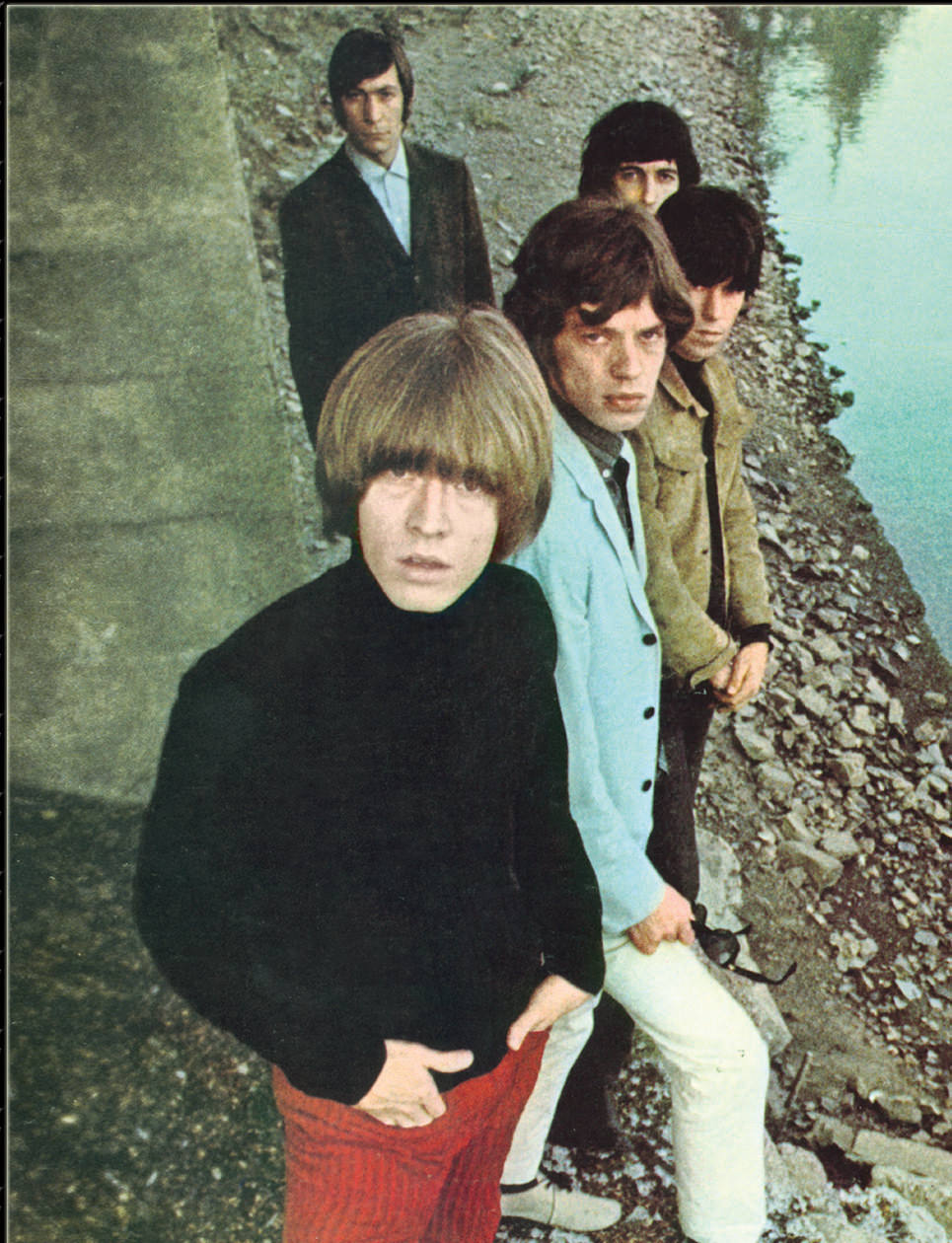Mondegreens
Mistaken lyrical identities.

Lately I’ve been listening to “Virginia Plain”, the great 1972 debut single by Roxy Music. “But wait,” Bryan Ferry sings just before the song’s abrupt ending, “can’t you see that horse so lame? What’s her name? Virginia Plain.”
It’s a good name for a racehorse. Ferry must have bet money on it, and then down the stretch it came up lame. A sad and poignant ending to a song about living that jet-set life.
Except I got it wrong, apparently. The actual line is, “Can’t you see that Holzer mane?”
Well, no. Who has? I wouldn’t know a Holzer mane if I found one in my cheeseburger. Nonetheless, it appears I have engaged in that most common form of accidental creativity—I have created a mondegreen.
The term mondegreen was coined by Sylvia Wright in a 1954 essay in Harper’s Magazine. Wright described how her mother would read songs and poems to her, including an old ballad called “The Bonny Earl of Murray”. The first verse of the song reads:
Ye highlands, and ye lawlands,
Oh quhair hae ye been?
They hae slain the Earl of Murray,
And hae laid him on the green.
But Wright heard it differently. She thought there were two victims—the poor earl and also a certain “Lady Mondegreen”. Thus she proposed that misheard lyrics and lines be known as mondegreens.
And they are, officially—although some people might be more inclined to call them “kissthisguys” after the oft-misheard Jimi Hendrix line from “Purple Haze”, “ ’Scuse me while I kiss this guy” (actually “kiss the sky”), a mondegreen that provided Gavin Edwards with the title of one of his books on the subject.
As for the Roxy Music song, “Holzer mane” seems to be a reference to the lustrous hairstyle of 1960s model “Baby” Jane Holzer, an Andy Warhol protégé also referenced in an earlier verse: “Baby Jane’s in Acapulco, we are flyin’ down to Rio.”
But how many people will draw personal meaning from “Holzer mane?” And for that matter, if it’s about Jane Holzer, why is her name Virginia Plain? Makes no sense. Whereas a lame horse—a horse named Virginia, natch—is a universally understood disappointment. According to Wright’s original definition, this means my little mis-conception is a true mondegreen. She felt that a real mondegreen should be an improvement on the original.
Virtually everybody has their own personal examples. One friend of mine recently asked via social media, “Am I the only who always thought the lyrics in ‘Personal Jesus’ [by Depeche Mode] were ‘reach out and suck face?’ ” My guess is yes. But worry not—at least the people already offended by the actual lyrics (“Your own personal Jesus, reach out and touch faith”) are unlikely to be any more offended by a new high school variation.
Technically, a mondegreen does not have to be a song lyric, but for obvious reasons, they are now most associated with pop music. Between slurred delivery and loud musical accompaniment, misunderstood song lyrics are inevitable. The Kingsmen’s perfectly innocent 1963 hit “Louie, Louie” was widely banned just for what parents and radio station programmers thought it might be saying. (In what is arguably the silliest episode in FBI history, the bureau launched a two-year “Louie, Louie” investigation, eventually concluding the words were “unintelligible at any speed”.)
Add to that the tendency of some lyricists to come up with work that could be painfully obscure and sometimes just plain inept. I grew up listening to Jon Anderson’s lyrics for progressive-rock superstars Yes:
The time between the notes relates the colour to the scenes.
A constant vogue of triumphs dislocate man, so it seems.
And space between the focus shape ascend knowledge of love.
As song and chance develop time, lost social temp’rance rules above.
A random page from the phone book would serve just as well. But considering these examples of rock poetry, it’s little wonder we sometimes thought we were hearing random gibberish. Often, we were.
Mondegreens highlight a reality of popular music—regardless of what a particular song’s composer and writer intended, we all hear our own version and ascribe to it our own meanings, twisting the words to suit our own purposes. As a tortured youth, I constantly adopted certain songs to fit very specific incidents in my own life. (I didn’t always need lyrics to do this—I used to interpret Johnny Winter’s “Mean Town Blues” as the tale of an unfortunate trip I took to Edmonton, represented for me by the lengthy, frenetic guitar solos.)
Popular music was our Scripture. We were less likely to question whether a line made sense than to try to interpret what the strange words might mean. Like Biblical scholars, we devotees were left to decipher and debate.
Things are a little different now—there are websites that list lyrics. These lyric sites are far from perfect. Usually crowd-sourced, they sometimes simply collect the same mondegreens heard by large groups of listeners. Although such websites involve a lot of guesswork, they’re useful for the obsessive lyric hound. I can now go online and learn that the poor old bum named Aqualung was bending to pick up a “dog-end”. What exactly is a dog-end? Apparently, a cigarette butt. I didn’t know that. Which highlights another aspect of those old pop and rock-and-roll songs we listened to—they were educational.
Elton John’s 1970 album Tumbleweed Connection featured the melancholy song “Come Down in Time”, which contained this line: “A cluster of nightjars sang some songs out of tune.” Nightjars? I had no idea what those were. I assumed “nightjar” must be another name for a busker or freelance entertainer. Eventually I would discover that a nightjar is a bird. Do they really sing out of tune? To this day, I’m forced to take lyricist Bernie Taupin’s word on that. (Taupin was capable of dropping some serious clunkers. The same album featured the song “My Father’s Gun”, containing this couplet: “As soon as this is over we’ll go home. To plant the seeds of justice in our bones.” I had no idea farming was so painful.)
Since much of our favourite music was British, song lyrics could teach us about commonplace aspects of U.K. life that the songwriters themselves wouldn’t give a second thought to. When John Lennon and Paul McCartney sang in the Beatles’ “Doctor Robert,” “My friend works for the National Health”, an attentive young listener could pick up that he was not simply referring to the general public good, but to the British government’s medical system. On the same album, Revolver, George Harrison’s “Taxman” alerted North Americans to the confiscatory British tax policies that would, many years later, usher in the Thatcher era.
For years, I amazed school friends with the factual tidbit that English people who spoke of “tea” were not necessarily speaking of a hot beverage but sometimes of a small afternoon meal. My source? The Who, and their little ditty “Heinz Baked Beans”, in which a succession of family members ask mum, “What’s for tea?” Since the eventual answer is indeed those titular beans, it was obvious there was something about the concept of “tea” I had previously failed to grasp.
There is in fact a variation of the mondegreen that results from cultural and linguistic confusion. Known as soramimi, these are misunderstandings that result when a translated lyric sounds like something else. Naturally, the Beatles are a rich source of soramimi. Their breakthrough smash “I Want to Hold Your Hand” went to Japan as “Aho na hōnyōhan”, which also sounds like a Japanese phrase meaning “Idiotic public urination”.
If pop songs tell you something about their authors, mondegreens can reveal something about their inadvertent creators. In some cases, mondegreens have gone on to inspire their own creative works, a famous example being J.D. Salinger’s novel The Catcher in the Rye. His young narrator, Holden Caulfield, aspires to be the “catcher in the rye” who will rescue the lost and wayward—all based on a mishearing of the line in the old Robbie Burns poem/song “Coming Through the Rye” as “catch a body” rather than “meet a body” coming through the rye. Whether the mistake was Salinger’s or simply his character’s, the revised version tells you about the mindset of a damaged young innocent.
Song lyrics are often so quirky and personal that it is pointless to try to figure out what they mean anyway. Like the Roxy Music single and its Holzer mane, many a pop song chronicles people, events, and incidents that have little or no relevance outside the world of their authors.
My own need to know the words represents a combination of native curiosity and a desire to sing in the shower with real conviction. But when I run up against an artist like Cat Power, it becomes truly difficult. Her songs are all about feel—at her musical best, she can evoke a sad, bittersweet mood like few others. But the lyrics? God only knows what she’s on about. Even the websites often can’t decipher them, although to be fair I have no idea if they’re right. Take these alleged lines from “The Greatest”: “Lower me down to culprit south, make ’em wash a space in town.” Correct? Who could ever know? If it turned out to be “Lower me down to catch the sound; While we watch a space in time” it would make the same amount of sense. Might as well sing what you want.
Lately I’ve been listening to Guided By Voices, the indie cult-favourite band helmed by songwriter Robert Pollard. Pollard’s lyrics can be evocative, sometimes brilliant, sometimes either hopelessly opaque or just plain awkward. It’s all on display in the band’s elegiac song “Hold On Hope”: “Invitation to the last dance. Then it’s time to leave. But that’s the price we pay when we deceive, one another.”
Lovely. Too bad about the next line: “Animal mother, she opens up for free.” Pollard goes on to insert a cowboy and a campfire into the next verse. From which Toby Keith ballad did the lost cow puncher wander in? No point trying to figure Pollard out. Take the words you like, marry them to the mood of the piece. And when you get to those problematic verses about cowboys, or Holzer, or culprit south—mumble.
Ultimately you are singing your own song anyway.




